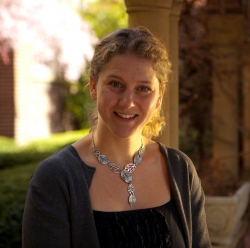Cindy Isenhour
Research Area:
My research engages with the climate on multiple scales. At the micro-level I focus on environmental risk perception and decision-making in wealthy, high-consuming, urban contexts. The realities of urban living are such that most urbanites – particularly in relatively wealthy global cities – are far removed from the most harmful effects of their lifestyles. Yet high standards of living in urban cores result in significant displaced environmental loads. When urbanites do perceive risk they often respond on the market through the purchase of more efficient appliances, local products or alternative fuel vehicles. But how effective are consumption-based strategies? Do these mitigation strategies constitute a transformative movement composed of aggregated but individual consumers with shared values–resulting in objective emissions reductions? Or are these movements a reflection of neoliberal environmental policies that devolve responsibility for mitigation away from the state and toward market actors, diluting the potential for more significant regulations and restrictions?
At the mezzo-level this research examines how the actions that urbanites take to reduce the climate impact of their lifestyles articulates with sustainability policy and urban planning initiatives. I specifically examine disjunctures and unintended consequences of policies that focus on urban energy efficiency and improving the carbon intensity of the local economy but have objectively resulted in the significant displacement of environmental costs, carbon leakage, and net increases in global GHG emissions.
Finally, at the macro level my work examines the climate impact of consumption- drawing on analyses of the emissions embodied in goods and services, particularly those produced in distant developing contexts but consumed in affluent urban settings. I’ve recently analyzed the diffusion of consumption-based emissions accounting and policy responses in the EU and many global cities. My research thus directly addresses the reality that there are significant emissions embodied in global trade but that are not adequately accounted for in the UNFCCC process.
As a new faculty member in the Department of Anthropology I will be teaching several courses that should be of interest to CCI students including “Natural Resource Management in Cross Cultural Perspective,” “The Human Dimensions of Climate Change” and “Anthropological Perspectives on Environmental Policy”.


